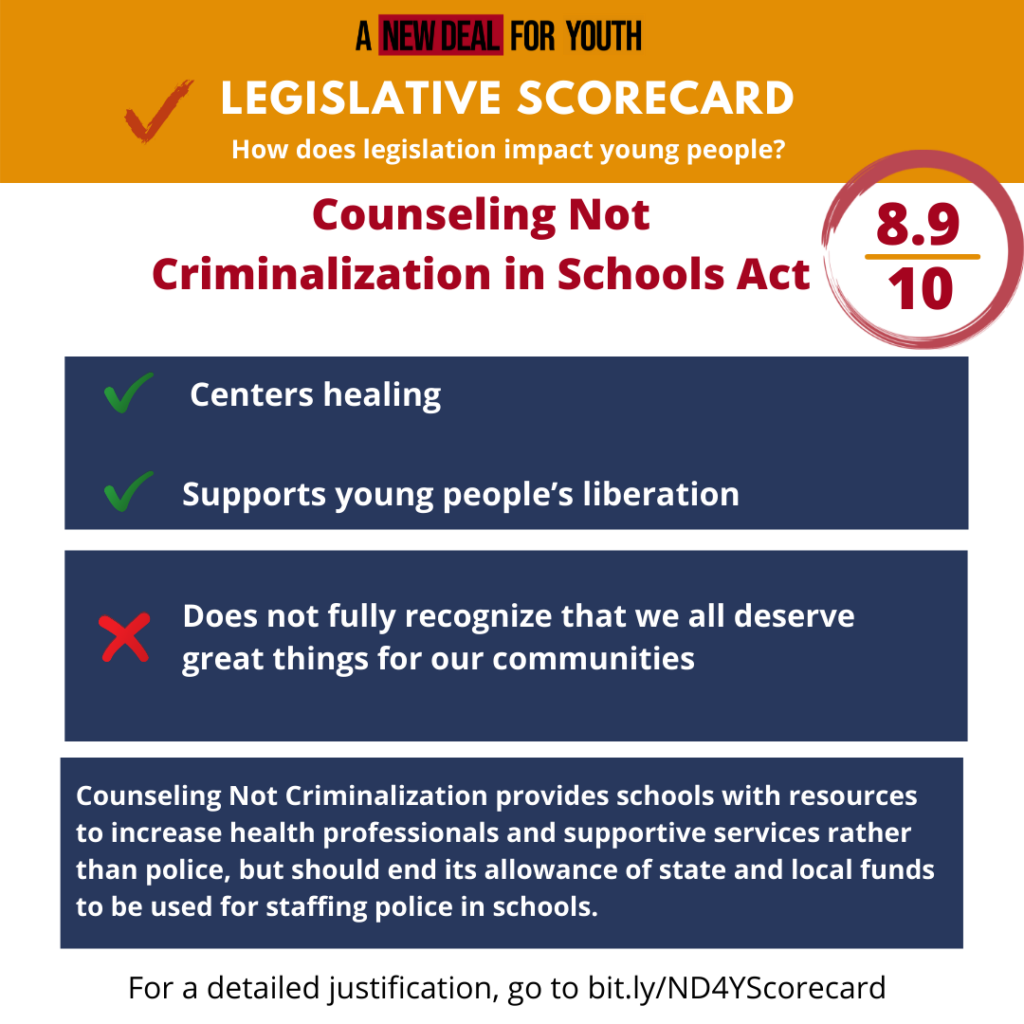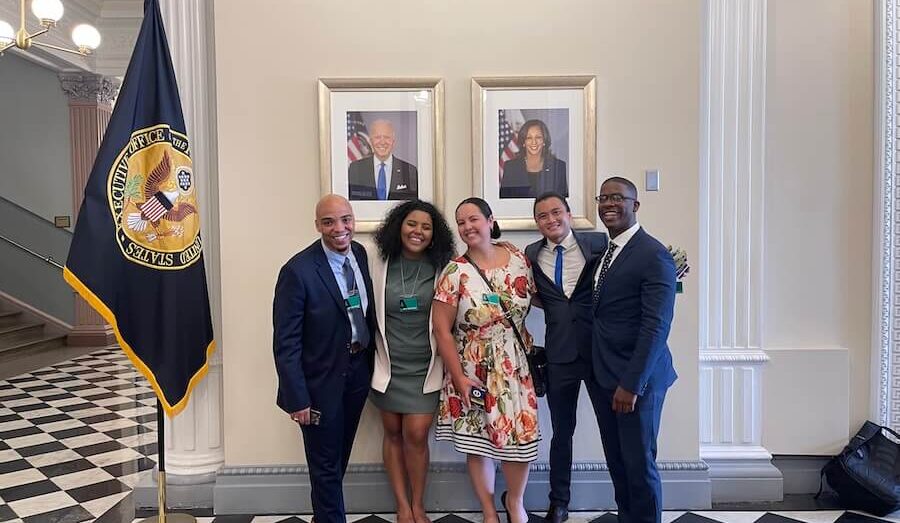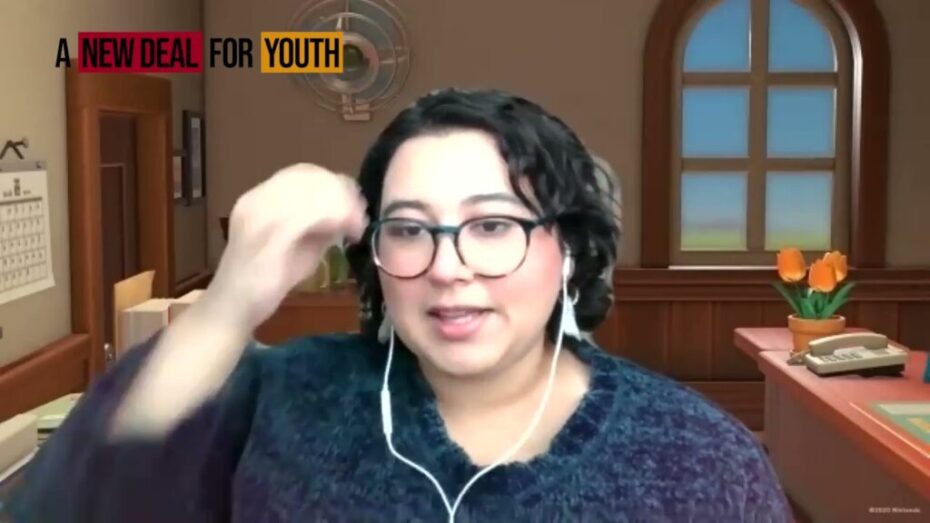The Counseling Not Criminalization in Schools Act was recently reintroduced in Congress by Rep. @ayannapressley, Sen. @chrismurphyct, Sen. @elizabethwarren, Rep. @ilhanmn, Rep. @jamaalbowmanny and Sen. @tinasmithmn.
The legislation would provide schools resources to hire counselors and mental health professionals instead of police and would advance our demands for healing and well-being.
Our #NewDealforYouth changemakers used our criteria to score this bill and it’s impact on youth and young adults.
8.9/10
High Impact Question: | Yes/No | Why? |
Does it shift power, decision-making, and/or resources to youth and young adults? | Yes | The Counseling Not Criminalization in Schools Act provides schools with resources to increase social workers, counselors and other supportive personnel and services in schools rather than police. This will provide youth with necessary mental health resources that will promote their academic and overall success and wellbeing. |
Is it youth-led? | No | Though the bill is youth-centered, it is not specifically led by young people. |
Does it dismantle institutions and systems that have become complacent? | Yes | Counseling Not Criminalization dismantles school policing that disproportionately impact youth of color and directly correlates with the school-to-prison pipeline. |
Is it youth-centered? | Yes | The focus of the bill is to promote the safety of youth in schools. |
Does it address immediate needs? | Yes | The bill will provide $5 billion in grant money for districts to hire counselors and other health professionals instead of police and prohibit the use of federal funds for maintaining police in schools. This would address the immediate need for safer schools and fewer youth arrests. |
Does it build momentum towards systems change? | Yes | Counseling Not Criminalization advances strategies to improve school climate, including positive behavioral interventions and supports, trauma-informed services, and professional development which builds momentum towards positively changing the U.S. education system. |
Does it transform the system rather than reform it? | Yes | Rather than reforming the system through alternative forms of school policing, the bill dismantles school policing altogether and transforms the education system to move away from policies that criminalize students and push them out of schools. |
Does it support young people’s liberation? | Yes | The bill seeks to disrupt the school-to-prison pipeline, which will reduce school pushout, promote long term success, and support young people’s liberation. |
Does it set youth up for success? | Yes | Advancing school practices that create safe and inclusive learning environments to keep students in schools will set youth up for success. |
Does it center healing? | Yes | Counseling Not Criminalization prioritizes trauma informed care in schools that will center healing. |
Is it community-driven? | Yes | Grassroots support was an important component in the creation of this bill. |
Does it address many different areas that impact young people’s lives? | Yes | The bill recognizes the ways that students’ social, emotional, and mental health are critical to their academic and personal success. |
Does it address long-term thriving? | Yes | Counseling Not Criminalization will increase the number of school districts that choose to move away from policies that criminalize students, pushing them out of school. Investing in resources to provide students with the support they need to feel safe in school will promote long-term thriving. |
Does it ensure that none of our priority populations are left out? | Yes | The bill recognizes that the increased criminalization of schools disproportionately impacts “Black, Native American, and Latino students, immigrant students, students with disabilities, LGBTQ students, students experiencing homelessness, students involved in the foster care system, and other historically marginalized students.” |
Does it shift narratives around youth and young adults? | Yes | Counseling Not Criminalization shifts the narrative around the necessity of school punishment and promotes the narrative that investing in the mental health of young people will advance their overall wellbeing. |
Does it recognize that young people hold more than one identity at the same time? | Yes | The bill acknowledges the ways identity, specifically for marginalized students, leads to increased school punishment, school pushout, and further criminalization. |
Does it recognize that we all deserve great things for our communities? | No | Although the bill works to end school policing and youth criminalization, it allows for state and local funds to be used for staffing police in schools. |
Does it benefit at least one priority population? | Yes | Counseling Not Criminalization benefits marginalized students and promotes their safety and success in schools. |






